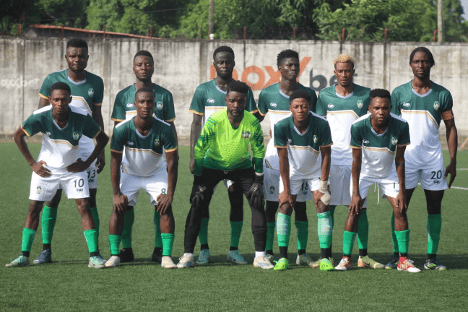MONROVIA – The Liberia Football Association (LFA) has overturned the First Instance Board’s (FIB) decision to fine Jubilee FC US$1,000 for submitting a fraudulent business registration document during the club licensing process. Instead, the LFA has imposed a fine of US$10,000, as stipulated in the Club Licensing Revised Book of Sanctions 2024-2025.
In a communication from the LFA, Jubilee FC’s actions were deemed a clear violation of the association’s club licensing rules and regulations. The club, which is owned by Jubilee Praise and Worship Center—a prominent church in Liberia—has reportedly been acquired by Cassell Anthony Kouh, President of FC Fassell. Kouh has declared his ambition to contest the 2026 LFA presidency.
Discovery of Fraudulent Documentation
During a routine verification process by the LFA Club Licensing Department, discrepancies were discovered in Jubilee FC’s business registration documents. The registration was found to be under a different name, rendering it non-compliant with licensing regulations. Upon being forwarded to the FIB for investigation, Jubilee FC admitted to the falsification, claiming they were misled.
The FIB’s investigation acknowledged Jubilee FC’s swift efforts to rectify the matter by securing proper documentation from the Liberia Business Registry and presenting it to the Club Licensing Department. Based on this, the FIB, led by Cllr. Jacob K. Dayrell Sr., opted for leniency, imposing a fine of US$1,000—a decision it described as being made “in the wisdom of the Board.”
However, the LFA Executive Committee overruled the FIB’s decision, citing the Club Licensing Revised Book of Sanctions, which mandates a fine of US$10,000 or exclusion from league participation for submitting fraudulent documents. A communication dated January 2, 2025, from the LFA Secretariat informed Jubilee FC of the revised fine, emphasizing that such practices undermine the integrity of the association.
Public Outcry and Legal Disputes
The LFA’s decision has sparked widespread debate. On a local radio show, Jubilee FC President James K. Nimene expressed dismay over the increased fine, calling it unjust. He argued that the club, rooted in church principles, had been misled during the registration process and vowed to seek legal redress. Nimene also highlighted that Jubilee FC had already paid the initial US$1,000 fine.
The First Instance Board has come under scrutiny, with allegations that it acted beyond its jurisdiction. Cllr. K. Jlayteh Sayor Sr., LFA Executive Committee member and head of the Player Status and Legal Committees, asserted that the FIB lacks authority to address violations occurring after a club has been licensed. According to him, such matters fall under the purview of the LFA Disciplinary Committee.
Sayor pointed out inconsistencies between the LFA’s actions and FIFA regulations, emphasizing that any domestic regulation contravening FIFA statutes is invalid. FIFA’s disciplinary framework stipulates that violations involving licensed clubs should be handled by the Disciplinary Committee.
Calls for Reform
The controversy has fueled criticism of the LFA Executive Committee, with some accusing its members—many of whom are club owners—of imposing excessive fines. The US$10,000 penalty, equivalent to the league’s prize money, is seen as disproportionately harsh for a procedural violation. Critics argue that the previous penalty of US$1,000 was more appropriate and are calling for a review of the sanctions policy.
As the dispute unfolds, Jubilee FC faces a seven-day deadline to pay the fine or risk further disciplinary measures, including exclusion from league activities.









Discussion about this post